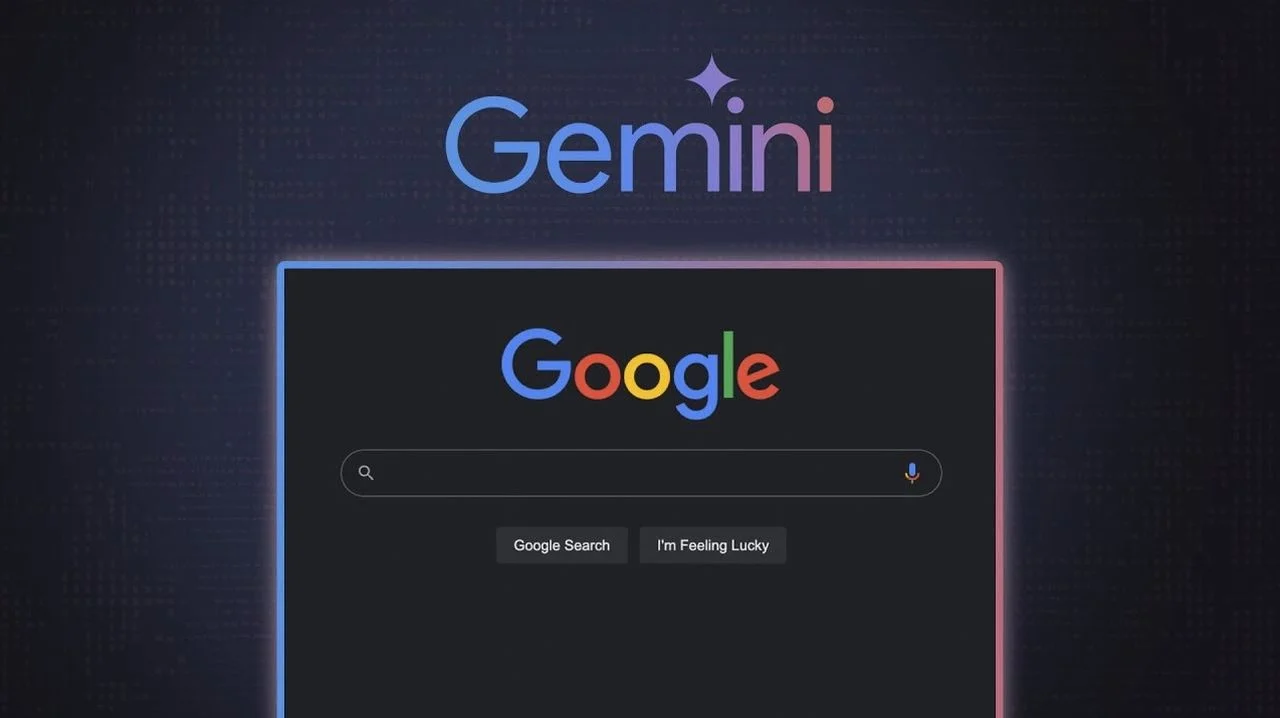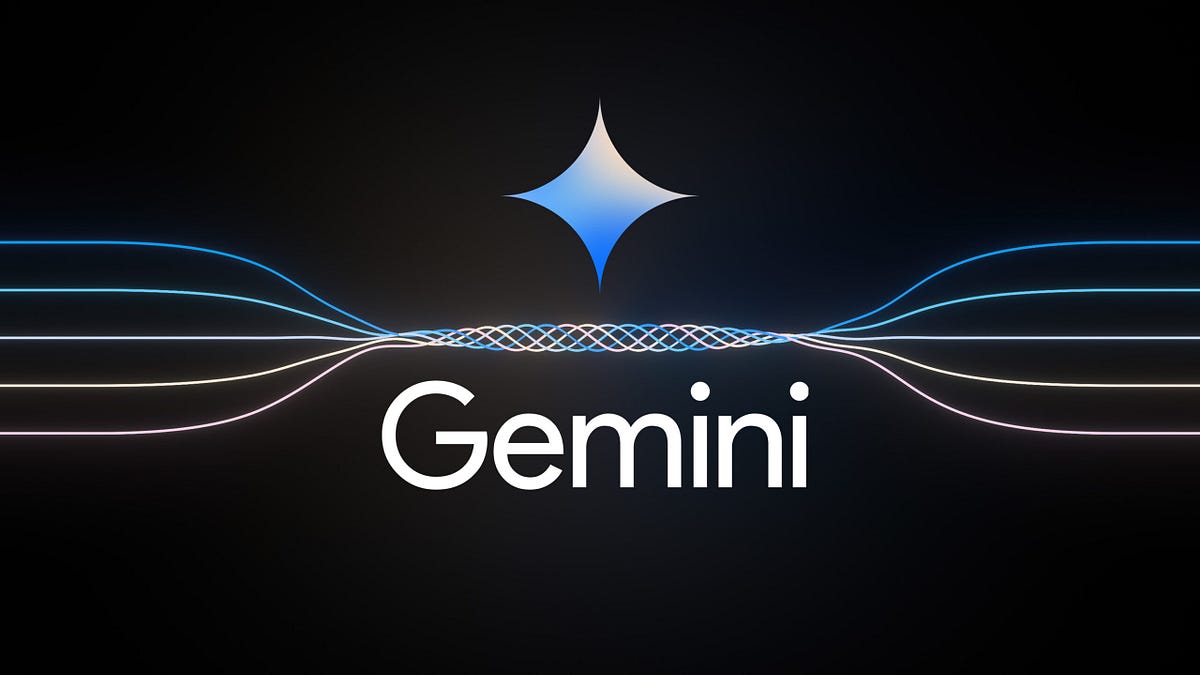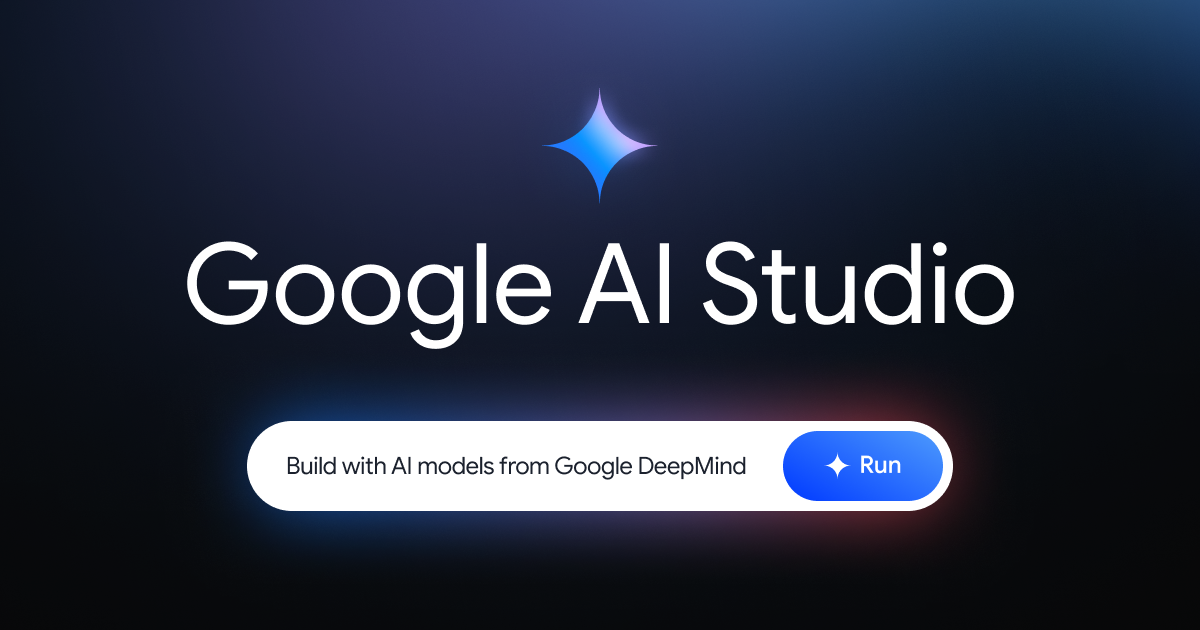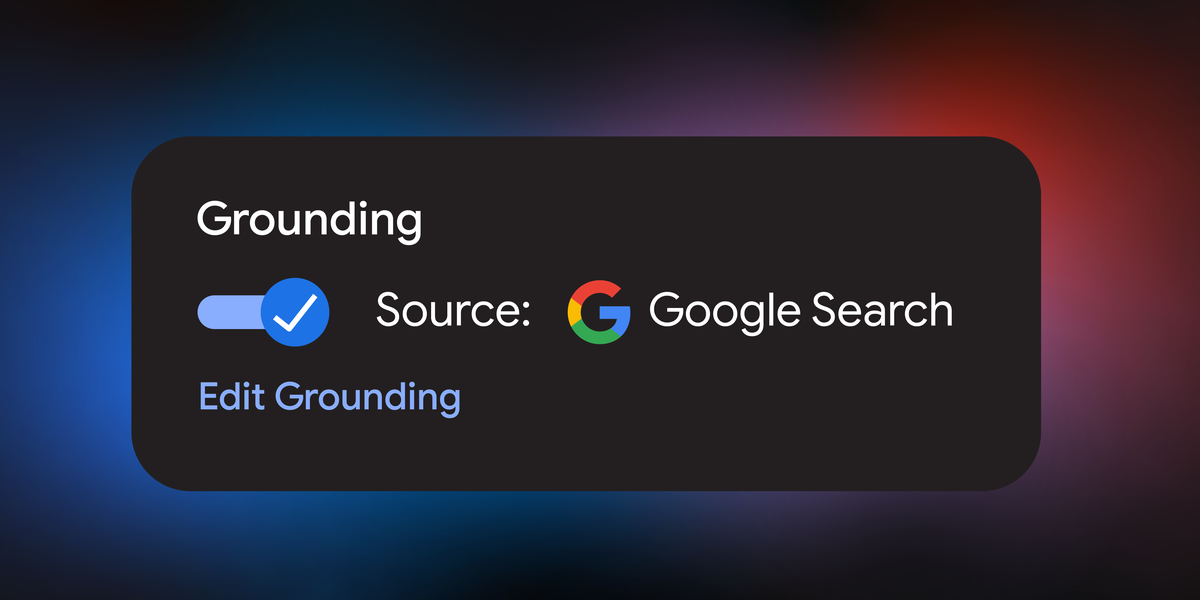
In the rapidly advancing field of AI, tools that deliver high accuracy and relevance are critical for developers looking to build trustworthy, user-centric applications. Google’s recent breakthrough integrating Gemini API and Google AI Studio with Grounding with Google Search represents a major leap forward. This new feature allows AI models to pull real-time information from Google Search, ensuring that the answers produced are up-to-date, reliable, and based on real data.
This feature has significant implications for both developers and businesses. Instead of relying solely on pre-trained data, grounding allows AI applications to validate and enrich answers with live data, ultimately increasing user trust and satisfaction. By integrating grounding, AI systems are less prone to “hallucinations,” where the AI produces answers based on outdated or incorrect information. This development is particularly important for applications in dynamic areas such as finance, healthcare, and e-commerce, where accurate data is crucial.
In this article, we will explore the features of the Gemini API and Google AI Studio, explore the capabilities and benefits of grounding, and look at how this technology is setting a new standard in AI accuracy. We will also examine practical examples of grounded responses, highlight usage techniques for developers, and discuss how grounding could shape the future of AI applications.

What is Gemini API?
Gemini API is a versatile AI toolkit designed by Google to empower developers by providing sophisticated AI functionality for their applications. Designed to seamlessly integrate into a variety of application types, Gemini API supports complex AI models that can understand and generate answers based on contextual and real-time information. This is especially useful for applications where accuracy, speed, and relevance are critical.
Key Features and Functionality of Gemini API
Several features set Gemini API apart from other AI tools on the market. Here’s a closer look at some of the highlights:
-
Grounding with Google Search: Grounding, the most powerful new feature of Gemini API, increases the factual accuracy and relevance of AI-generated answers by allowing applications to access real-time information from Google Search. This feature ensures that answers are not only contextually correct, but also based on the most up-to-date data.
-
Dynamic Rollback Settings: Developers can adjust grounding settings according to their needs. For example, grounding can be enabled for applications where real-time information is required (such as news or financial updates), while in other cases it can be turned off to reduce processing time.
-
Enhanced Security and Compliance: Recognizing the importance of data security, Gemini API adheres to strict security protocols, making it suitable for use in a range of industries, including finance, healthcare, and government applications.
-
Developer-Centric Design: With intuitive tools, detailed documentation, and strong support, Gemini API makes it easy for developers to integrate AI capabilities without a steep learning curve. Google provides extensive resources to enable both novice and experienced developers to explore the full potential of the API.
In addition to these features, the Gemini API offers unique functionality that enables customization and integration across a wide range of use cases. This is especially important for organizations looking to enhance customer experiences with intelligent, responsive applications.
How to Use Google AI Studio
Google AI Studio is an integrated platform that simplifies the process of building, testing, and deploying AI models. With an intuitive interface and a set of built-in tools, Google AI Studio enables developers to efficiently build, refine, and deploy AI solutions for a variety of applications. It provides a cohesive environment where developers can leverage both pre-built models and custom training capabilities.
Key Tools and Features in Google AI Studio
Here’s a breakdown of the key tools and features that make Google AI Studio an invaluable resource for developers:
-
Model Training and Testing: Developers can easily build and refine models using Google’s advanced machine learning algorithms. The platform supports a range of model types, from basic classification models to advanced neural networks.
-
Data Processing Tools: Google AI Studio includes data cleaning, preprocessing, and augmentation tools to ensure models are trained on high-quality datasets. This feature is essential for applications that rely on accurate data-driven predictions.
-
Deployment Options: Once a model is trained and tested, developers can deploy it with just a few clicks. Google AI Studio offers options to deploy models to the cloud, making it easy to quickly and effectively integrate AI functionality into applications.
-
Real-time Monitoring: After deployment, developers can use Google AI Studio’s monitoring tools to monitor model performance and make adjustments as needed. This feature allows for continuous improvement and fine-tuning of AI models.

Step-by-Step Guide to Using Google AI Studio
-
Create an Account: Since Google AI Studio is part of the Google Cloud ecosystem, start by creating a Google Cloud account.
-
Create a New Project: After logging in, create a new project in Google AI Studio and define the goal, target variables, and relevant data parameters.
-
Choose and Train a Model: Choose a model type that fits the project’s goals. Google AI Studio offers pre-trained models for rapid implementation, as well as custom models that can be tailored to your unique needs.
-
Test and Optimize: Use Google AI Studio’s testing tools to evaluate model performance and make any necessary adjustments before deployment.
-
Deploy: Once testing is complete, deploy the model to the cloud where it can interact with applications and users in real-time.
Google AI Studio’s versatility and ease of use make it ideal for a wide range of applications, from small-scale projects to large enterprise solutions. Its integration with the Gemini API** further enhances its utility by allowing developers to create intelligent applications that adapt to real-time information.
Understanding Grounding with Google Search
Grounding is a new feature that allows AI models to pull live information directly from Google Search. Unlike traditional AI models that rely solely on pre-trained data, grounding integrates real-time data to increase the accuracy and relevance of answers. This feature is a significant advancement in AI technology, especially for applications where data freshness is important.
There are two ways to configure a model to use Grounding with Google Search: using a string and using a dictionary.
String configuration:
model = genai.GenerativeModel('models/gemini-1.5-pro-002')
response = model.generate_content(contents="Who won Wimbledon this year?",
tools='google_search_retrieval')
print(response)
Configure by dictionary:
model = genai.GenerativeModel('models/gemini-1.5-pro-002')
response = model.generate_content(
contents="Who won Wimbledon this year?",
tools={"google_search_retrieval": {
"dynamic_retrieval_config": {
"mode": "unspecified",
"dynamic_threshold": 0.06}}})
print(response)
For a dictionary implementation, you do not have to pass key-value pairs for mode or dynamic_threshold. You can skip them and let the model use the default values, as in the following example:
model = genai.GenerativeModel('models/gemini-1.5-pro-002')
response = model.generate_content(contents="Who won Wimbledon this year?",
tools={"google_search_retrieval": {}})
print(response)
Benefits of Grounding
The main benefits of grounding are its ability to increase response accuracy, relevance, and trustworthiness. By integrating real-time information, grounding ensures that AI applications answer user queries with the most up-to-date and accurate data.
-
Improved Accuracy: Grounding greatly increases the truthfulness of AI-generated responses. This is especially useful in areas where data integrity is critical, such as healthcare, finance, and e-commerce.
-
Real-Time Relevance: With Grounding, responses are based on live data from Google Search. This feature ensures that AI responses are not only accurate, but also relevant to the current moment. This is a significant advantage for news-based or time-sensitive applications.
-
Increased Reliability: With access to verified sources, grounding provides users with answers they can trust, thereby increasing trust in AI-based solutions.

Dynamic Fetch Settings for Grounding
To adapt to different application needs, the Gemini API includes Dynamic Fetch Settings, which allows developers to turn **grounding on or off. For example, grounding can be useful for applications that require instantaneous information, such as stock market updates or news aggregators. However, in cases where real-time data is not required or would slow down processing speed, developers can adjust the settings accordingly.
Ensuring Accuracy and Trustworthiness with Grounding
Grounding not only increases the accuracy of responses, but also minimizes illusions—incorrect or misleading information—that an AI model can produce. This feature is critical for areas such as healthcare, where even small errors can have serious consequences. By relying on real-time and verified information, grounding supports the creation of reliable applications and increases user confidence in AI-based responses.
Benefits of Grounding for Developers
The benefits of grounding are not limited to user satisfaction alone; it also offers significant advantages for developers. By using grounding, developers can ensure that their applications provide more accurate and useful answers, thus improving the overall user experience.
Grounded vs. Non-Grounded Queries
While grounded queries pull data from live sources like Google Search, non-grounded queries rely solely on the AI model’s pre-trained knowledge. This distinction is especially effective for applications that work with dynamic content. Grounded queries allow applications to provide users with up-to-date and relevant information, a clear advantage over non-grounded queries that may lack the context needed for time-sensitive answers.
Augmented Reality Accuracy and Richer Responses
Grounding responses offer enhanced real-time accuracy, especially in applications that process real-time information. For example, in applications focused on financial markets, grounding responses can provide up-to-date data on stocks, commodities, or currencies. By providing users with accurate and up-to-date information, grounding queries increase the reliability and usefulness of the application.
Examples of Grounding Responses in Application
Let’s examine some practical examples of how Grounding improves response quality:
-
Healthcare Applications: A grounded query can pull the most up-to-date health guidelines from trusted sources, ensuring users receive the most accurate advice based on current medical standards.
-
E-commerce Platforms: Grounding enables the retrieval of real-time product data (such as stock status and end-user reviews), helping customers make informed purchasing decisions.
-
Finance and Investment Applications: Grounding enables real-time updates such as stock prices, exchange rates, and market news; which is critical for users making financial decisions.
In each of these examples, grounding not only increases the accuracy of responses, but also adds significant value to the user, encouraging longer-term engagement with the app.
Access to Gemini AI: A Step into the Future
Google’s Gemini AI technology is essential for developers looking to access and integrate it into their applications. The Gemini API is available for developers looking to incorporate advanced AI features into their projects.
Gemini AI Access and Pricing Structure
While the Gemini API is accessible to most developers, pricing options vary. Currently, Google offers a tiered pricing model based on usage volume and specific feature requirements.
How to Access Gemini AI Through Google?
To access the Gemini AI API, developers can sign up through Google Cloud and select the API features that best suit their needs. Once the sign-up process is complete, developers can follow the API documentation to begin integrating Gemini AI features into their projects.
The Future of AI Applications with Grounding Technology
Grounding technology represents a transformative change in AI applications. It sets a new standard in user experience by enabling AI models to produce accurate, reliable, and relevant answers. As this technology develops, it is expected to shape the future of AI applications for education, content creation, and customer support.
For developers who want to stay at the forefront of AI technology, integrating the Gemini API and Google AI Studio grounding feature will be a strategic choice. By leveraging these tools, they can create solutions that not only meet user expectations, but also set a new benchmark for quality and reliability in AI-powered applications.
“Writing is seeing the future.” Paul Valéry


